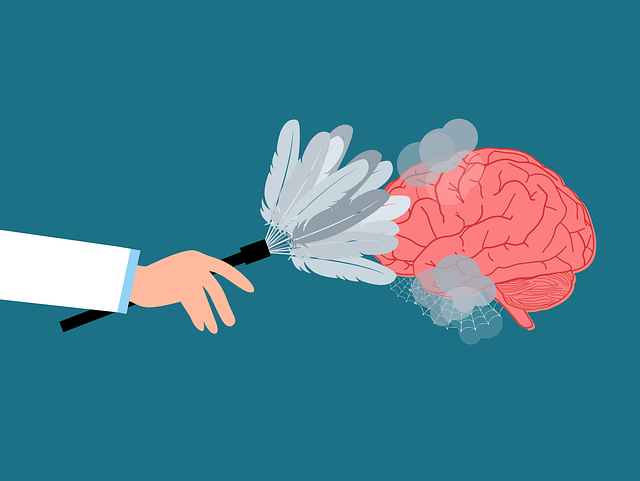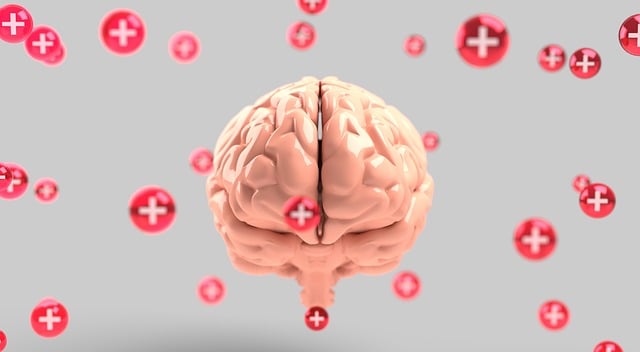Trauma from various sources significantly impacts mental health, requiring specialized support like that offered by Broomfield Anxiety Therapy. They provide holistic trauma recovery through therapy, counseling, and support groups, focusing on self-awareness and coping mechanisms for anxiety. Overcoming stigma and lack of awareness about local resources is crucial; community programs offer safe spaces and tailored initiatives. Broomfield Anxiety Therapy's approach combines evidence-based techniques with personalized communication, continually improving based on client feedback and research. Public awareness campaigns are key to expanding access to these essential services.
Trauma can profoundly affect individuals’ lives, leading many to seek support services. This article explores the critical role of trauma support in helping people heal. We begin by delving into the understanding of trauma and its far-reaching impact on mental health. Next, we introduce Broomfield Anxiety Therapy, a comprehensive approach known for its effectiveness. We discuss barriers to accessing support services and present solutions to ensure accessibility. Finally, we emphasize the importance of continuous improvement in trauma care through best practices.
- Understanding Trauma and Its Impact
- Broomfield Anxiety Therapy: A Comprehensive Approach
- Accessing Support Services: Barriers and Solutions
- Effective Implementation and Continuous Improvement
Understanding Trauma and Its Impact

Trauma is a profound and complex experience that can leave lasting effects on an individual’s mental and emotional well-being. It stems from various sources, such as adverse childhood experiences, violent incidents, or natural disasters, and manifests in different ways. At Broomfield Anxiety Therapy, we recognize that trauma goes beyond the immediate event; it’s a response that involves the mind, body, and spirit. The impact can be profound, leading to conditions like post-traumatic stress disorder (PTSD), anxiety, depression, and other mental illnesses.
Understanding trauma is crucial in reducing the stigma surrounding mental illness and fostering effective support systems. By recognizing the signs and symptoms, individuals can access essential services that promote emotional healing processes. These include therapy, counseling, and support groups that help navigate the challenging journey of recovery. Broomfield Anxiety Therapy’s expertise lies in providing safe spaces for clients to process their experiences, develop coping strategies, and reclaim their lives after trauma.
Broomfield Anxiety Therapy: A Comprehensive Approach

Broomfield Anxiety Therapy offers a comprehensive approach to trauma support services, focusing on the holistic treatment of individuals who have experienced anxiety and related trauma. This therapy goes beyond traditional methods by integrating various techniques such as communication strategies, cognitive behavioural therapy, and mindfulness practices. The primary goal is to enhance self-awareness exercises and equip clients with effective coping mechanisms to manage their symptoms.
Through tailored sessions, therapists help individuals explore the root causes of their anxiety, fostering a safe space for them to confront and process traumatic memories. By combining evidence-based therapies with empathetic support, Broomfield Anxiety Therapy aims to empower clients to regain control of their lives, promote emotional healing, and cultivate lasting resilience in the face of adversity.
Accessing Support Services: Barriers and Solutions

Accessing support services for trauma recovery is essential but often comes with its set of challenges. Individuals facing trauma may experience barriers such as stigma surrounding mental health, fear of judgment, or simply not knowing where to turn for help. These obstacles can be particularly daunting when dealing with complex issues like anxiety and stress management. For instance, those in Broomfield seeking anxiety therapy might feel deterred by the cost, availability, or lack of awareness about local resources.
However, solutions exist to overcome these barriers. Community organizations often provide a safe space for individuals to connect with peers and access mental wellness coaching programs development tailored to their needs. Stress management workshops organized by local groups can equip people with practical tools to cope with trauma-related symptoms. Additionally, self-esteem improvement initiatives can empower individuals to take that first step towards seeking professional help or participating in support groups, fostering a sense of resilience and empowerment.
Effective Implementation and Continuous Improvement

Effective implementation of trauma support services requires a multifaceted approach. At Broomfield Anxiety Therapy, we’ve found that combining evidence-based therapeutic techniques with tailored communication strategies is key to successful outcomes. By fostering open dialogue and promoting mood management skills, our services cater to the unique needs of each individual. Continuous improvement is paramount; we regularly review and adapt our practices based on client feedback and emerging research in trauma care.
Public awareness campaigns development plays a crucial role in broadening access to these services. Educating the community about trauma’s impact and available resources empowers individuals to seek help proactively. Through collaborative efforts, we can create a more supportive environment where those affected by trauma feel understood and equipped with the tools necessary for healing.
In navigating the complex landscape of trauma support, it’s evident that Broomfield Anxiety Therapy offers a comprehensive solution. By addressing the root causes and providing personalized care, this approach ensures effective healing. Overcoming access barriers through innovative strategies is crucial for delivering continuous improvement in services. Through such initiatives, we can foster a supportive environment, enabling individuals to reclaim their lives post-trauma.












